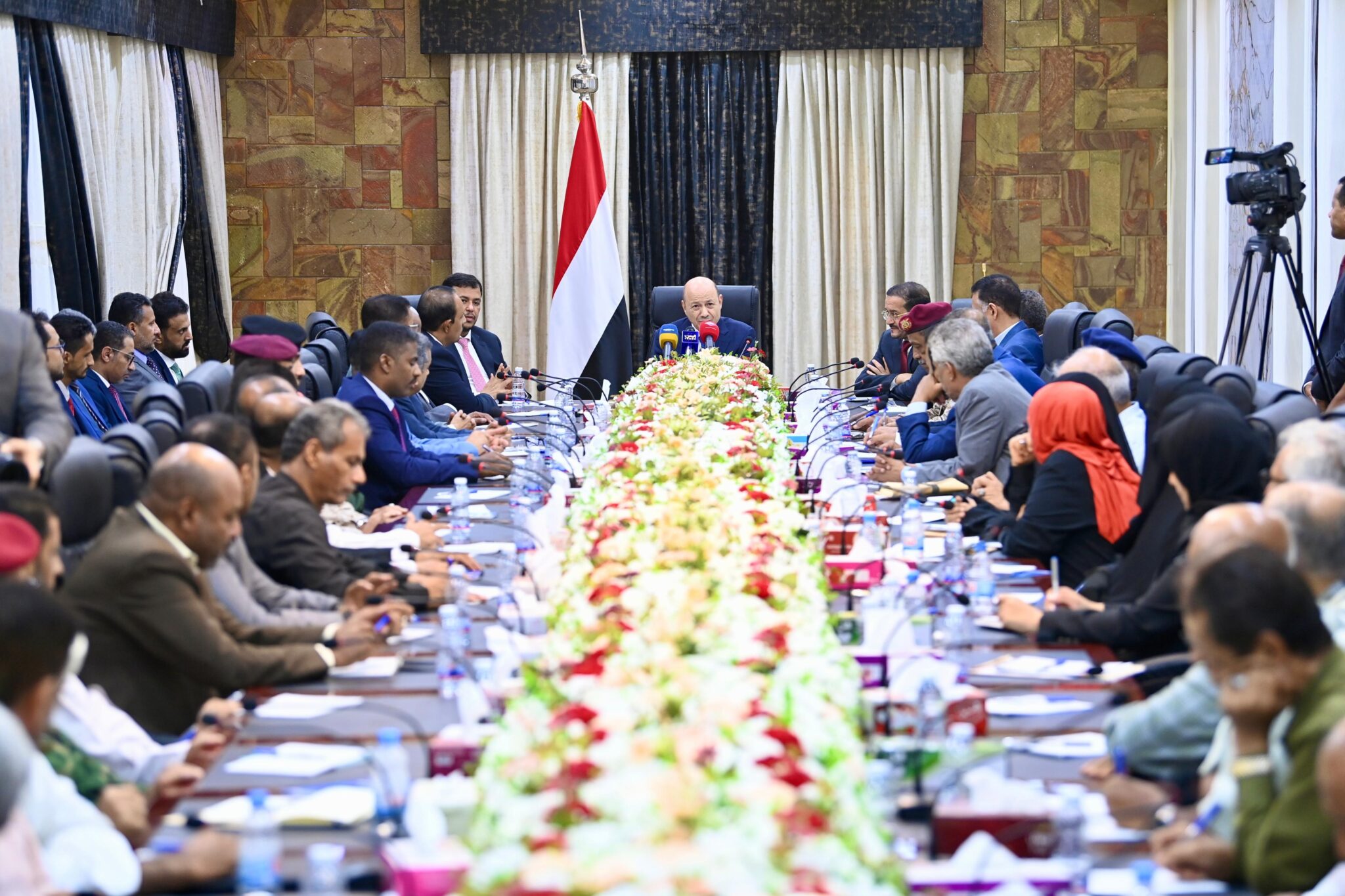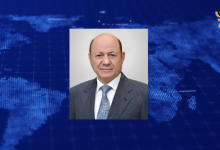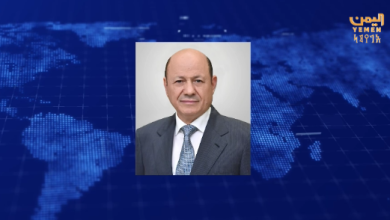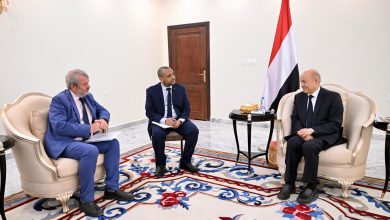Leadership Council President convenes meeting with Hadhramaut’s local authority and executive office leaders.

President Dr. Rashad Mohammed Al-Alimi, head of the Presidential Leadership Council, along with council members Dr. Abdullah Al-Alimi and Sheikh Osman Majali, convened a meeting with Hadhramaut Governor Mabkhout bin Madi, local authority leaders, and members of the executive office in the province to discuss service, living, and development conditions. The meeting aimed to support local authority efforts to ensure security and stability and to fulfill its obligations towards citizens amidst the catastrophic repercussions of the Houthi terrorist attacks on oil facilities.
During the meeting, the President of the Presidential Leadership Council expressed his and his colleagues’ appreciation for the local authority leadership and the executive office directors for their efforts to overcome the existing difficulties, especially since the oil facilities ceased exporting due to Houthi terrorist attacks, which resulted in the loss of about 70% of the state’s public resources.
The President also extended his profound gratitude to the people of Hadhramaut for their interaction and support of the local authority, presenting it as a model of coexistence and respect for law and order.
The President outlined the Council and the government’s efforts to overcome the effects of intertwined challenges and turn them into promising opportunities for self-reliance, benefiting optimally from the support of brothers in the Kingdom of Saudi Arabia, the United Arab Emirates, and the donor community. He highlighted the generous developmental and humanitarian interventions in Hadhramaut by the Coalition to Support Legitimacy, led by Saudi Arabia, alongside service projects supported by the government and local authority despite the financial crisis created by the Houthi militias with Iranian regime support.
The President urged the local authority leadership to continue its broad partnerships with all political and societal forces, stating that positive differences and diversity of opinions are positive entries for correcting work paths, activating monitoring, and enforcing the law.
He emphasized that security and stability are the main incentives for attracting investors, and Hadhramaut, with its loyal men, should make the private sector a real engine for comprehensive development. Achieving this goal, he noted, would not be easy without activating the judiciary and law enforcement agencies to reassure national capital.
The President called on revenue offices to double their efforts to compensate for the deficit in local authority resources, adhering to the laws in force at both central and local levels.
Dr. Abdullah Al-Alimi, a member of the Presidential Leadership Council, discussed the importance of state leadership visits to Hadhramaut, which deserves attention as a model of stability, coexistence, openness, and preservation of state institutions. He stressed the importance of focusing on service delivery priorities, strengthening state institutions, and urged the government and local authority to follow up and implement a matrix of service and public issues prepared by the government, including service and investment needs and facilitations for the private sector to attract capital, and ensure the operation of international organizations and humanitarian relief agencies.
Dr. Abdullah Al-Alimi remarked that the legitimate government’s alliance is in its best state, standing on solid ground against a single opponent, the Houthi terrorist militias supported by the Iranian regime. He emphasized the importance of the province overcoming any internal disputes, establishing principles of transparency, integrity, and fighting corruption, embracing all, avoiding exclusion of any political components within the legitimacy framework, and enhancing Hadhramaut’s status and role, which is governed and managed by its sons today.
Sheikh Osman Majali, a member of the Presidential Leadership Council, praised Hadhramaut’s status in the national memory as a safe haven for thousands of displaced people during the ongoing confrontation with the Houthi terrorist militias and their destructive project. He noted the Hadhrami community model based on family integration in embracing the other, avoiding extremism and terrorism, enhancing their presence in state-building and the national economy, and immunizing their children against misleading narratives by the Houthi terrorist militias.
He pointed to the importance of drawing inspiration from the virtues of the people of Hadhramaut in building state institutions, clean urban cities, and presenting their province as a model of security and peace. Sheikh Osman Majali affirmed that the Presidential Leadership Council is fully aware of the Houthi militias’ intentions and terrorist behaviors, and the Council’s keenness on de-escalation comes within the framework of giving the regional and international community a chance to revive a comprehensive and fair peace process according to its announced references.
In the meeting, the President of the Council, council members, the governor of Hadhramaut, deputy governors, members of the executive office, military and security leaders, representatives of businessmen, and the women’s sector listened to briefings on the general situation in the province, the local authority’s efforts in security, service, and developmental aspects, and the required support to alleviate the humanitarian suffering of citizens, including fundamental solutions for the electricity sector and basic services.
At the end of the meeting, the President directed the absorption of all proposals, including transforming the partnership matrix between the government and the local authority in Hadhramaut into a time-bound action plan under the direct supervision of the Presidential Leadership Council. The meeting was attended by Presidential Leadership Council advisors Omar Al-Amoudi and Badr Basalma.
To follow the news in Arabic


